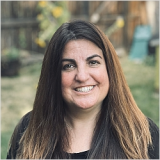Find a Therapist in Denver, CO
| Prev | Next |
Not finding the right therapist? Search for therapists in Glendale, Lakewood, or Englewood to expand your search.
Find a Therapist in Denver, CO
Living in Denver offers many advantages, from the vibrant downtown scene to easy access to outdoor recreation in the nearby Rockies. However, the Mile High City's fast-paced lifestyle, altitude adjustments, and seasonal weather changes can impact mental health in unique ways.
Whether you're a professional navigating Denver's competitive job market, a family adjusting to life at altitude, or someone experiencing seasonal mood changes during Colorado's long winters, seeking therapy is a positive step toward wellness.
Since 2007, GoodTherapy has been dedicated to connecting people with ethical, compassionate therapists who understand that all individuals are capable of change and deserve dignity and respect. Our Denver therapist directory features licensed professionals committed to eliminating stigma and providing quality mental health care.
Mental Health Support in Denver
Denver residents commonly seek therapy for anxiety, depression, relationship challenges, and work-related stress. The city's growing tech industry and competitive housing market can contribute to burnout and financial stress, while the high altitude may affect mood and sleep patterns for newcomers.
Local therapists understand how Denver's unique environment—from winter seasonal affective disorder to the social pressures of a rapidly growing city—can impact mental wellness. Many also recognize the mental health benefits of Colorado's outdoor lifestyle and incorporate these strengths into treatment approaches.
Therapy Approaches Available in Denver
Denver therapists utilize evidence-based approaches tailored to your specific needs and preferences. Learn about therapy approaches to find what resonates with you.
Cognitive Behavioral Therapy (CBT) helps identify and change negative thought patterns, making it particularly effective for anxiety and depression common in high-stress urban environments like Denver.
Solution-Focused therapy emphasizes your existing strengths and resources, helping you achieve specific goals whether related to career transitions or relationship improvements.
Dialectical Behavior Therapy (DBT) teaches emotional regulation skills, valuable for managing stress in Denver's competitive professional landscape.
Psychodynamic and Interpersonal therapy explore relationship patterns and unconscious influences, offering deeper insight into recurring life challenges.
Specialized Services
Many Denver therapists offer specialized services including couples counseling for relationship challenges, family therapy for parenting concerns, and group therapy sessions that build community connections in this growing city.
Finding Your Right Therapeutic Match
GoodTherapy's directory makes it easy to find Denver therapists who match your specific needs, whether you're seeking someone who understands altitude-related mood changes, workplace stress in the tech industry, or the unique challenges of relocating to Colorado.
What to Consider in Your Search
Consider factors like location convenience (downtown Denver, Cherry Creek, or suburban areas), therapy delivery methods including in-person and online options, insurance acceptance, and specialized experience with your particular concerns.
Get therapy help from our team if you need assistance navigating your options or have questions about the therapeutic process.
Making Therapy Affordable
Understanding that Denver's cost of living can make therapy feel financially challenging, many local therapists offer sliding-scale fees, payment plans, and accept various insurance options to make mental health care accessible.
Don't let cost concerns prevent you from seeking support. Contact therapists directly to discuss financial options, and explore the benefits of therapy as an investment in your overall well-being and quality of life.
Expanding Your Search
If you're having difficulty finding the right fit in Denver, consider expanding your search to nearby communities. Many residents find excellent therapists in surrounding areas that are easily accessible from Denver.
Taking the First Step
Starting therapy demonstrates strength and self-awareness. Denver's therapeutic community is committed to providing compassionate, non-judgmental support as you work toward your mental health goals.
Learn about GoodTherapy and discover how we've been breaking down barriers and building bridges to mental health care since 2007. Find a therapist in Denver today and take the first step toward positive change.
Related Resources
- Learn about therapy approaches
- Therapy delivery methods
- Get therapy help
- Benefits of therapy
- Learn about GoodTherapy
Find Therapists in Nearby Cities
Frequently Asked Questions
How do I find a therapist near me in Denver, CO?
Use GoodTherapy's Denver directory to search by location, specialty, insurance acceptance, and other preferences. You can filter results by neighborhood, therapy approach, and specific mental health concerns to find the right match.
What types of therapy are offered in Denver, CO?
Denver therapists offer various evidence-based approaches including Cognitive Behavioral Therapy (CBT), Solution-Focused therapy, Dialectical Behavior Therapy (DBT), Psychodynamic therapy, and Interpersonal therapy, along with specialized services like couples counseling and family therapy.
How much does therapy cost in Denver, CO?
Therapy costs in Denver vary by provider and service type. Many therapists offer sliding-scale fees, payment plans, and accept insurance to make treatment affordable. Contact therapists directly to discuss financial options that fit your budget.
Can I find therapists who accept insurance in Denver, CO?
Yes, many Denver therapists accept various insurance plans. Use our directory filters to search specifically for providers who accept your insurance, or contact therapists directly to verify coverage and discuss reimbursement options.
What mental health issues do therapists in Denver commonly treat?
Denver therapists commonly treat anxiety, depression, relationship issues, work-related stress, seasonal affective disorder, adjustment challenges related to altitude and relocation, substance use concerns, and family conflicts.









